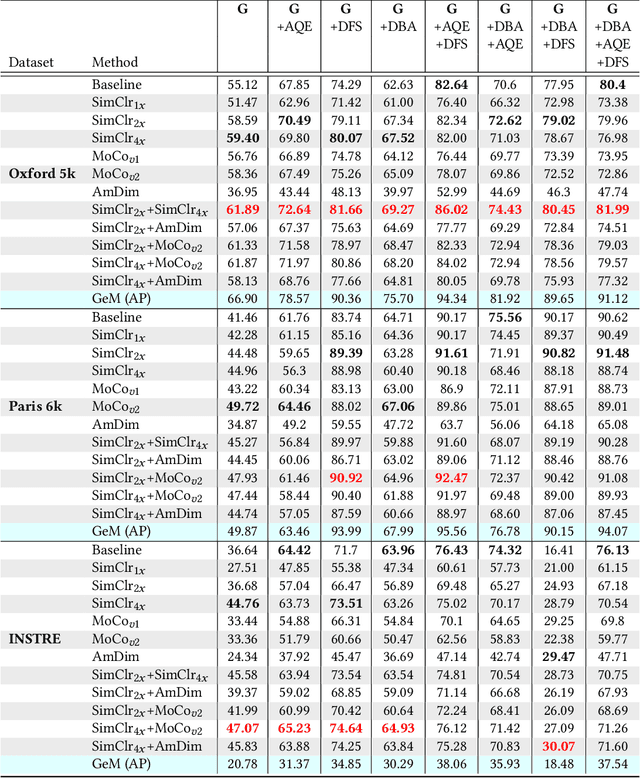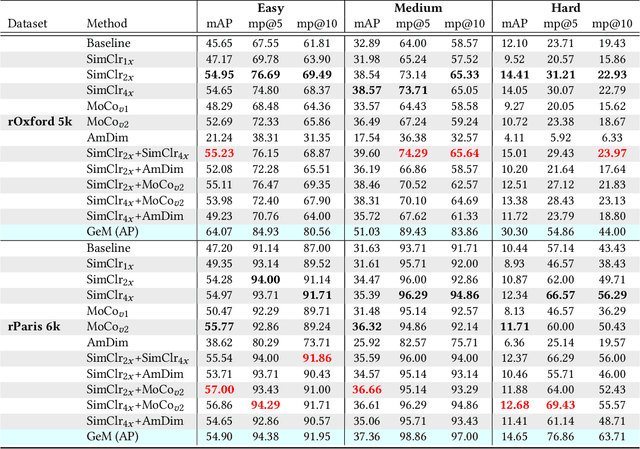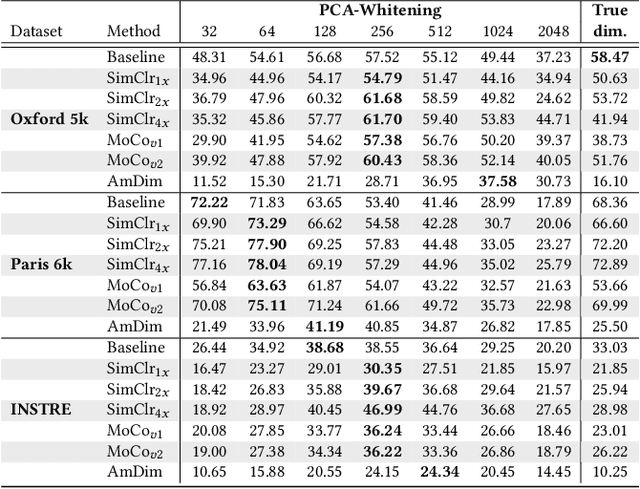Evaluating Contrastive Models for Instance-based Image Retrieval
Paper and Code
Apr 30, 2021


In this work, we evaluate contrastive models for the task of image retrieval. We hypothesise that models that are learned to encode semantic similarity among instances via discriminative learning should perform well on the task of image retrieval, where relevancy is defined in terms of instances of the same object. Through our extensive evaluation, we find that representations from models trained using contrastive methods perform on-par with (and outperforms) a pre-trained supervised baseline trained on the ImageNet labels in retrieval tasks under various configurations. This is remarkable given that the contrastive models require no explicit supervision. Thus, we conclude that these models can be used to bootstrap base models to build more robust image retrieval engines.
 Add to Chrome
Add to Chrome Add to Firefox
Add to Firefox Add to Edge
Add to Edge